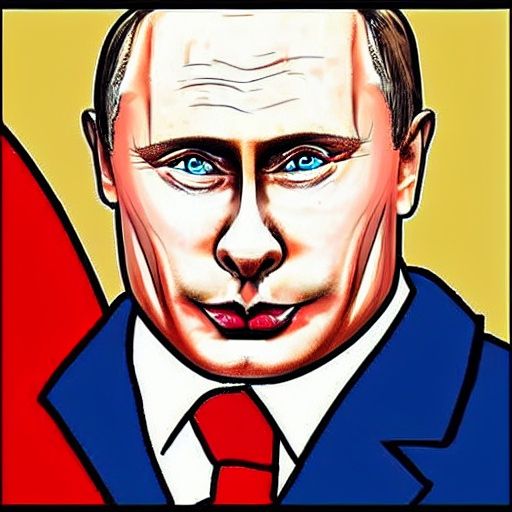
Vladimir Putin is a prominent Russian politician who has served as the President of Russia since 2000, with a brief hiatus in 2008-2012 when he served as the Prime Minister. Prior to his presidency, Putin worked for the KGB intelligence agency where he rose to the rank of Lieutenant Colonel. Known for his strongman image and authoritarian governing style, Putin has been widely criticized for suppressing political opposition, cracking down on civil liberties, and restricting freedom of the press in Russia. He has also been accused of human rights abuses, particularly in the regions of Chechnya and Ukraine. Despite his controversial reputation, Putin remains popular among many Russians for overseeing a period of economic growth and restoring Russia’s status as a global power.Putin’s leadership has been characterized by his assertive foreign policy, including the annexation of Crimea in 2014 and military intervention in Syria to support the Assad regime. He has also been accused of interfering in foreign elections, cyber-attacks, and disinformation campaigns to undermine Western democracies. Putin’s rule has been characterized by a strong emphasis on nationalism, traditional values, and a return to Soviet-era ideology. His long tenure in office has raised concerns about the consolidation of power and lack of democratic institutions in Russia.
Early Life and Political Career
Vladimir Putin was born on October 7, 1952, in Leningrad, Soviet Union (now Saint Petersburg, Russia). He studied law at Leningrad State University and joined the KGB intelligence agency after graduating. Putin rose through the ranks of the KGB and eventually became the director of the Federal Security Service (FSB) before entering politics. In 1999, he was appointed Prime Minister by President Boris Yeltsin, and later that same year, he became acting President. Putin was elected President of Russia in 2000 and served two terms before taking on the role of Prime Minister in 2008.
Controversial Leadership and International Relations
During his time in power, Putin has been criticized for his authoritarian leadership style and human rights abuses. He has cracked down on political opposition and independent media, leading to accusations of censorship and suppression of dissent. Internationally, Putin has been a polarizing figure, particularly in relation to Russia’s involvement in conflicts in Ukraine and Syria. Russia’s annexation of Crimea in 2014 and its support for separatist rebels in eastern Ukraine have strained relations with the West, leading to sanctions and diplomatic tensions.
Under Putin’s leadership, Russia has also been accused of interfering in foreign elections, including the 2016 US presidential election. The Russian government has denied these allegations, but the US and other Western countries have imposed sanctions and taken other measures in response. Despite these controversies, Putin remains popular among many Russians for his strong leadership and nationalist rhetoric. He has been credited with stabilizing the Russian economy and restoring the country’s prominence on the world stage.
 Top famous
Top famous
